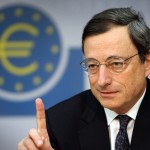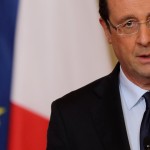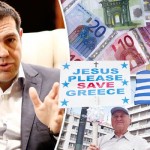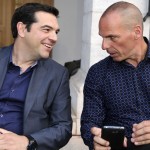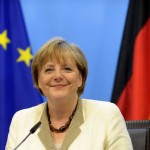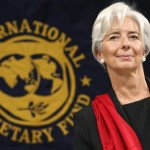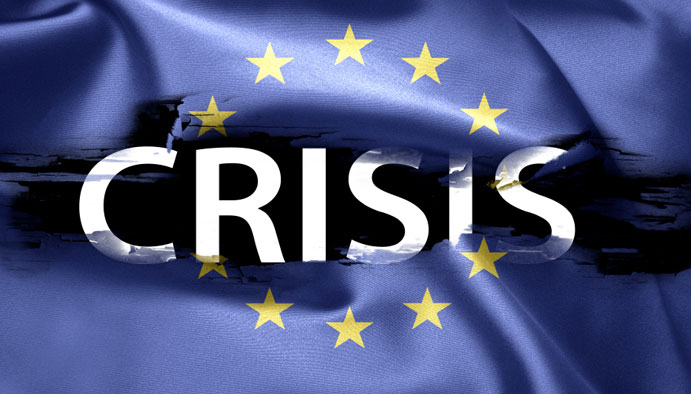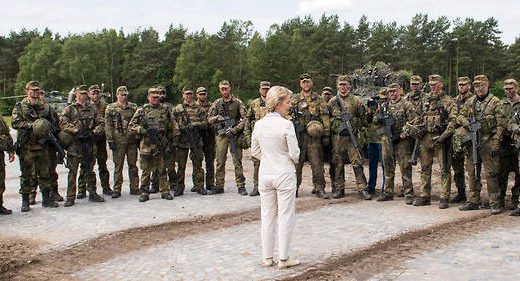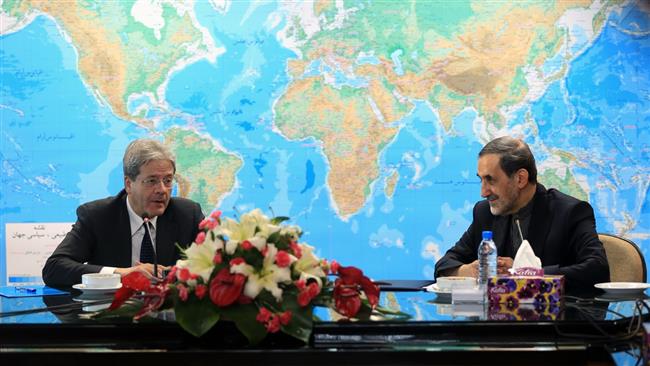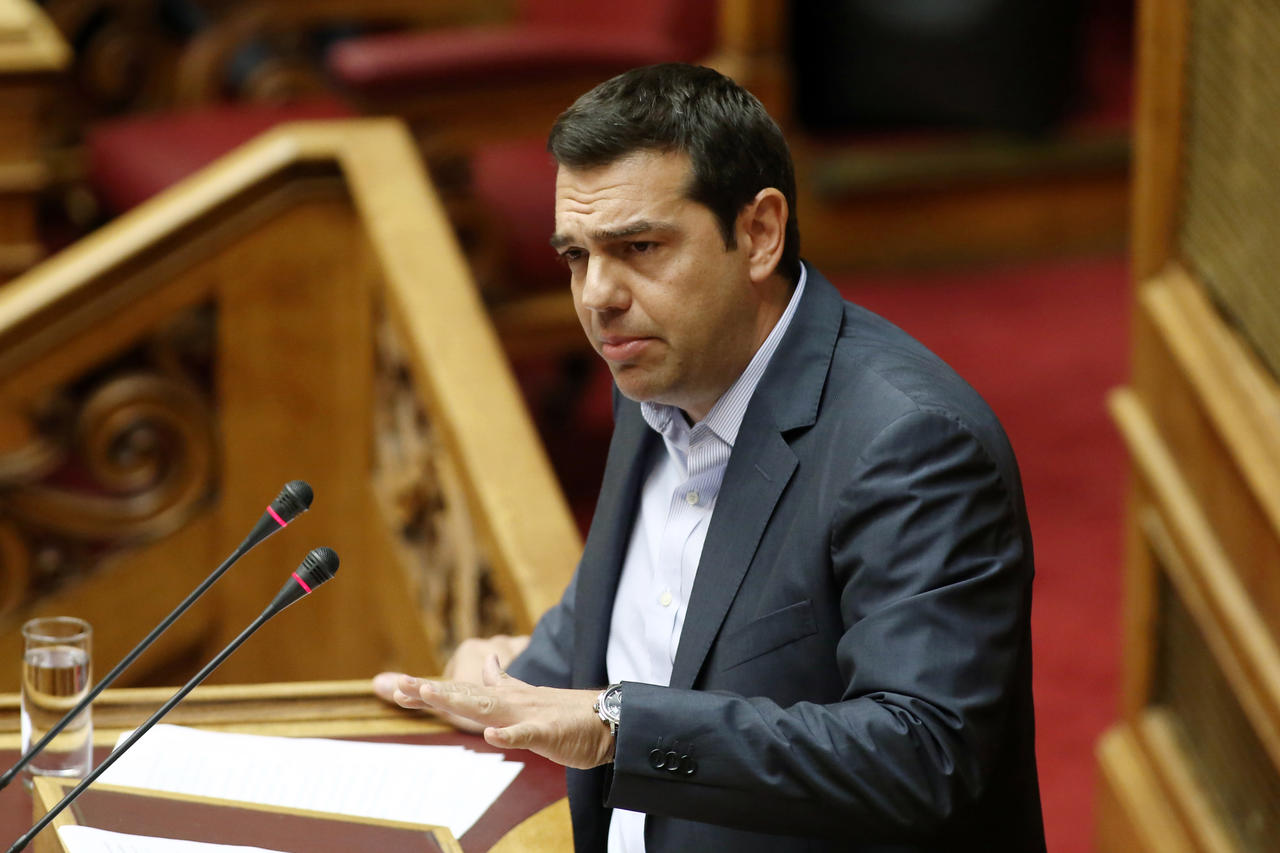- Mario Draghi , head of the European Central Bank
- French PM Holland
- Greeks are calling Jesus to help
- Alexis Tsipras (on the left), the new Greek PM and Yanis Varoufakis (Greek Finance Minister)
- Angela Merkel, German PM ,and leader of Europe.
- International Monetary Fund boss Christine Lagarde
- long waiting queues at cash distributors
- No more money in the banks
The Greek debt drama is nearing its climax after five years, led by a colourful cast of characters ranging from a novice prime minister keen to prove his mettle to a steely IMF chief set on more austerity.
Here is a look at the cast:
– Alexis Tsipras
Five months into the job as Greece’s first radical left leader, Prime Minister Alexis Tsipras, 40, faces a seemingly impossible choice between applying his government’s anti-austerity mandate and safeguarding the country’s future in the eurozone. He is under pressure from hardliners in his Syriza party, who want the government to reject the demands of Greece’s EU-IMF creditors.
Known for his refusal to wear ties to European summits, the boyish Tsipras has showed a willingness to compromise in talks with his counterparts, only to take a much tougher line once back in Athens. It is unclear whether he can sway his party, with the threat of new elections looming.
– Yanis Varoufakis
The wildcard of the Greek debt talks, motorbike-riding Finance Minister Yanis Varoufakis, 54, has become a household name with his untucked shirts, bald pate and acerbic attacks on austerity.
Previously an international economist of some renown, the self-described “erratic Marxist” seems more at ease chatting with unemployed anarchists than with fellow European finance ministers, who have often deplored his blunt negotiating tactics.
But after receiving intense media exposure that included a middle finger involving Germany and a controversial glossy magazine photo shoot, Varoufakis has been forced to take a back seat in the talks to less provocative negotiators.
– Mario Draghi
Italy’s Mario Draghi, 67, heads the European Central Bank, which is not only an Athens creditor but most crucially maintains a financial lifeline to Greek banks.
“Super Mario”, as he is dubbed by analysts, plays a key role but has been very careful not to appear too involved in the Greek crisis, insisting that the ECB “is not a political institution”.
The elegantly dressed former academic and international banker says he wants a “solid” agreement, not just a quick fix. But he is under pressure, with a growing number of central bank governors beginning to question the continued support for Greece. At the same time, a “Grexit” would take the eurozone into uncharted waters that Draghi has no wish to explore.
– Angela Merkel
Europe’s most powerful leader, Chancellor Angela Merkel, 60, has put her shoulder to the wheel of negotiations in recent weeks, frequently in tandem with French President Francois Hollande.
Merkel has been closely associated with the rescue of the eurozone since 2010 — she is one of the few players who was already in office at the time and has come to personify pro-austerity policies.
A break-up of the monetary union would be a horror scenario for Merkel and she is understood to be prepared to budge in the talks with Athens, but not too much. German public opinion is ill-disposed towards Greece and her conservative party is growing impatient.
– Christine Lagarde
Stylish International Monetary Fund boss Christine Lagarde, 59, has increasingly been playing “bad cop” in the negotiations with Greece.
The former French economy minister has been trying to foster harmony between the Greeks and European lenders, but must represent the interests of the Washington-based IMF’s 188 member-states.
Accused of taking a tough line, the IMF in recent weeks has pressed both the Greeks and the Europeans to take “hard decisions”: for Athens to accept new reforms, and for the Europeans to slash Greece’s debt.
Backing Lagarde is the real architect of Greece’s programme, Poul Thomsen.
A 30-year IMF veteran, Thomsen was mission chief in Athens at the height of the crisis but can no longer go to the country without a bodyguard. With his bushy eyebrows and messy hair, Thomsen is the IMF’s enforcer at day-to-day talks in Brussels.
– Jean-Claude Juncker / Jeroen Dijsselbloem
European Commission chief Jean-Claude Juncker, 60, has been a key broker in the talks with Tsipras but has seen his efforts fail so far.
The chain-smoking former Luxembourg prime minister and former head of the Eurogroup of eurozone finance ministers is a veteran of backroom Greek talks.
In recent weeks he has applied charm, pressure and even hugs and kisses for the camera in his efforts to win Tsipras over to his proposed reforms, so far to no avail.
Juncker’s successor as head of the Eurogroup is Jeroen Dijsselbloem, 49, the quietly efficient Dutch Finance Minister.
It is officially up to Dijsselbloem to seal any final deal with Athens but he has clashed with Varoufakis during the talks.


